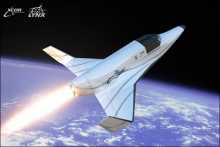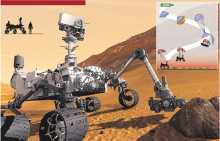March 2012
In 2014, space tourism will takeoff in the United States
The Federal Aviation Administration (FAA) stated that the Obama administration is getting ready for a space tourism industry to takeoff in the next two years. The industry has been estimated to have the potential to be worth about a $1 billion in a decade’s time.
I was talking about how space exploration should be privatized and this seems to be what is going to happen, thankfully. Space Exploration Technologies otherwise known as SpaceX and Orbital Sciences Corporation are two privately owned companies that NASA has hired in a mission to transport cargo to the $100 billion research complex that is the International Space Station.
NASA mission to fly Icarus-like close to the Sun in the future
Plans have been placed for NASA to fly a spacecraft perilously close to the Sun almost Icarus-like. Solar Probe Plus will give astronomers insights into how the Sun generates such enormous heat and the workings behind the solar winds. Additionally, the mission will serve to shed some light into the evolution of life on Earth and boost further exploration of space.
The price tag for the mission is estimated to be about $1.2 billion and many space enthusiasts wonder if NASA should be spending the money on trying to colonize other worlds or figuring out how to get started doing so rather than a mission to the Sun. I feel that this is a legitimate question, but astrophysicists and NASA astronomers agree that the space probe will be worth the money spent in terms of the information that will be gleaned.
The Train Wreck Cluster's Mysterious Dark Core
A Poor Formula for Interstellar Travel
Curiosity Landing on Mars is a $2.5 billion gamble for NASA
Landing the rover Curiosity on the Red Planet is going to pose a serious challenge because of the nature of its atmosphere. But this Rover landing which is part of the larger Mars Science Laboratory mission has great goals namely to plan for a possible manned mission to Mars in the future and also to solve the mystery about life on Mars. Additionally, operating Curiosity on the surface of the planet will give more insights into the geology of Mars and its climate.
I was really thrilled when the United States signed a bill two years ago permitting a manned mission to the Red Planet by the 2030s. I guess we really aren’t going to get anywhere near a space colony in my lifetime with all the difficulties that a manned mission to Mars poses. These could be anything from physical effects such as eyesight loss and exposure to high energy cosmic rays to the psychological effects of having to be away from Earth to even things like being unable to get good medical facilities.






